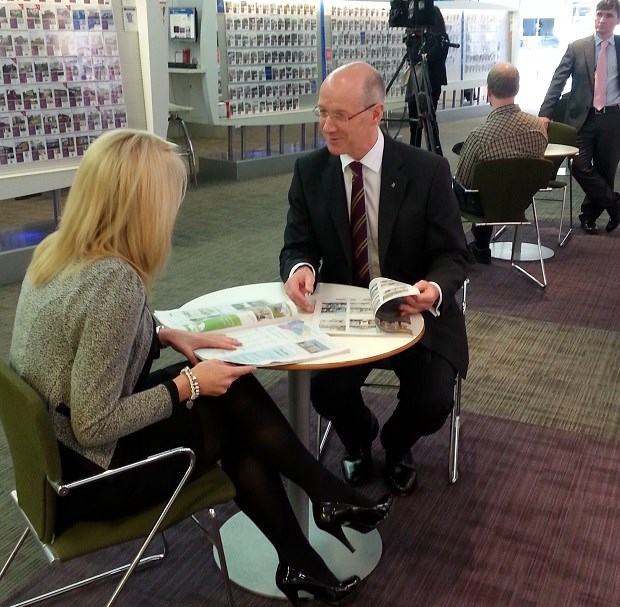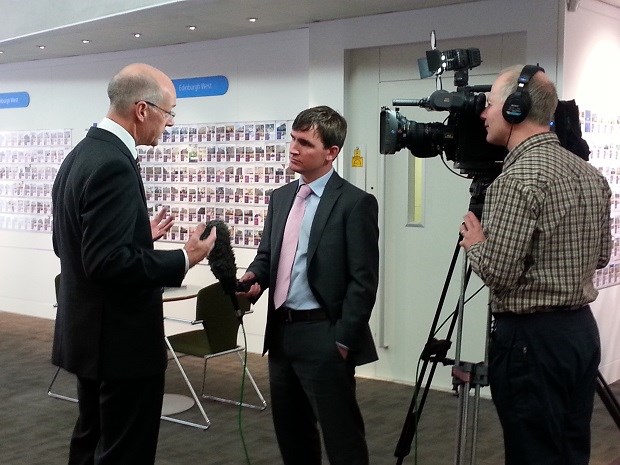History in the making
The first bill that will enable the Parliament to both set and collect a proportion of its own revenue was passed on Wednesday 26th June. Media who attended the showroom included STV, BBC, Radio Forth and The Scotsman. John Swinney discussed the proposed changes with the media, as well as ESPC Chief Executive Malcolm Cannon and recent first time buyer, Laura Dow.

The Land and Building Transactions Tax (Scotland) Bill which was introduced by Finance Secretary John Swinney will use powers in the Scotland Act 2012 to collect and manage taxes on the purchase or leasing of land and buildings. From April 2015, Land and Buildings Transaction Tax (LBTT) will replace the UK Government’s system of Stamp Duty Land Tax in Scotland.
The Scottish Government will implement a progressive tax structure for LBTT where the amount of tax paid is more closely related to the value of the property. This approach is in contrast to the current UK system of Stamp Duty Land Tax.
Commenting on the Bill, Finance Secretary John Swinney said, “The Scottish Parliament has passed the first ever bill allowing the Parliament to raise its own revenue. The Land and Building Transactions Tax Bill will allow the Scottish Government to set and collect taxes in Scotland in a more efficient way and at less cost than the UK Government.
“The Scottish Government has set out our innovative approach to taxation that is much better aligned with Scots law and practices, and the principle of progressive taxation.
“The changes that will come into force in April 2015 will, for the first time, give us the opportunity to better support first time buyers trying to get onto the housing ladder or families buying bigger homes that better suit their needs. Rather than the current distortive ‘slab’ approach which sees people pay too much tax and distorts the market, Scottish taxpayers will now pay an amount more proportionate to the value of their property.”
The Scottish Government has already outlined plans to establish Revenue Scotland, a small and efficient body which will work with Registers of Scotland to ensure the collection and administration of the tax at a lower cost than that proposed by Her Majesty’s Revenue and Customs (HMRC).
You can read more about ESPC’s analysis of the proposed changes and views, plus view cost breakdowns of the two example scenarios outlined by MSP’s to see how the changes could affect you.